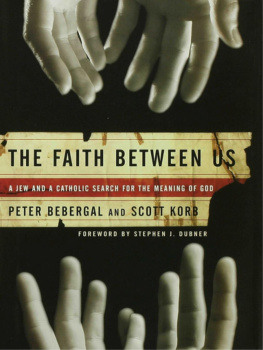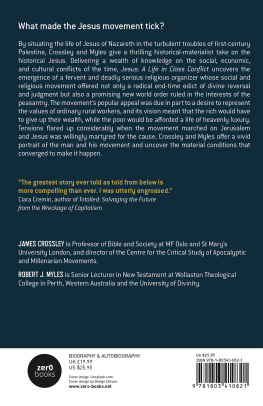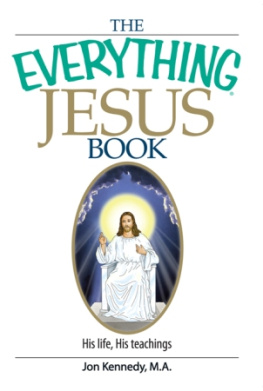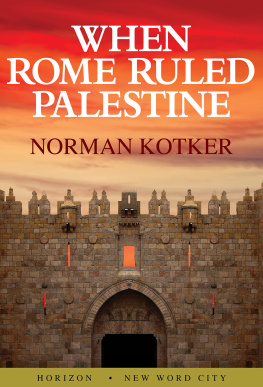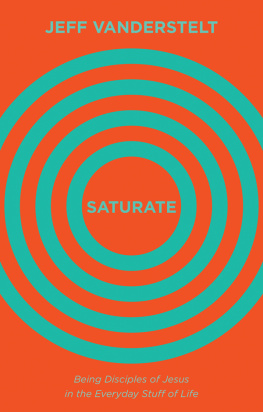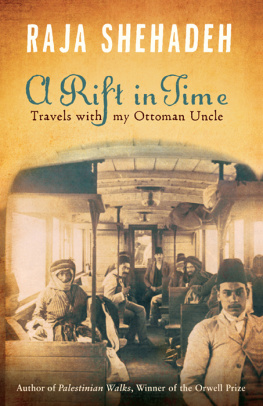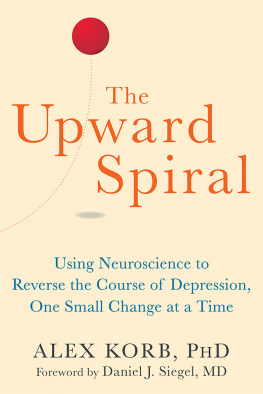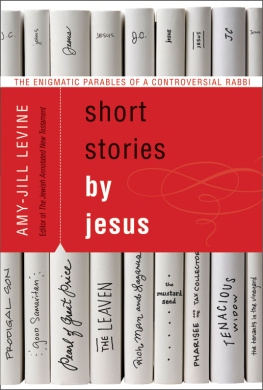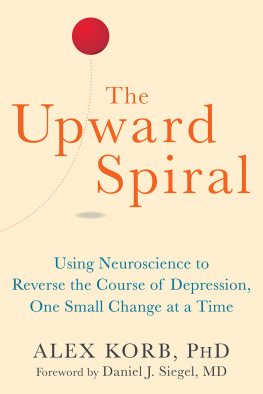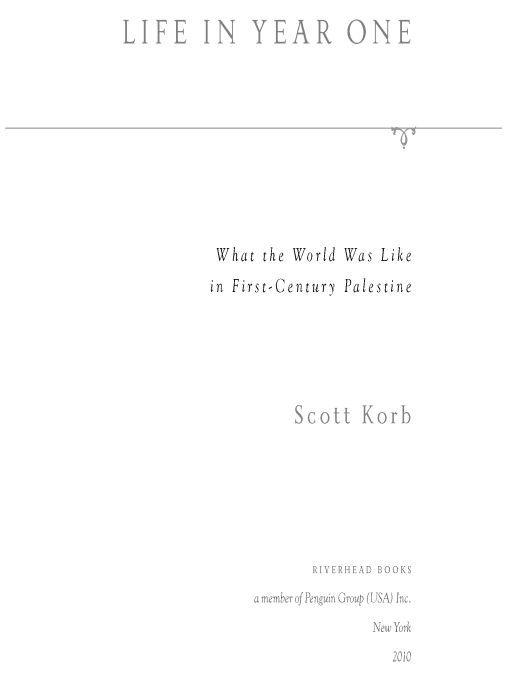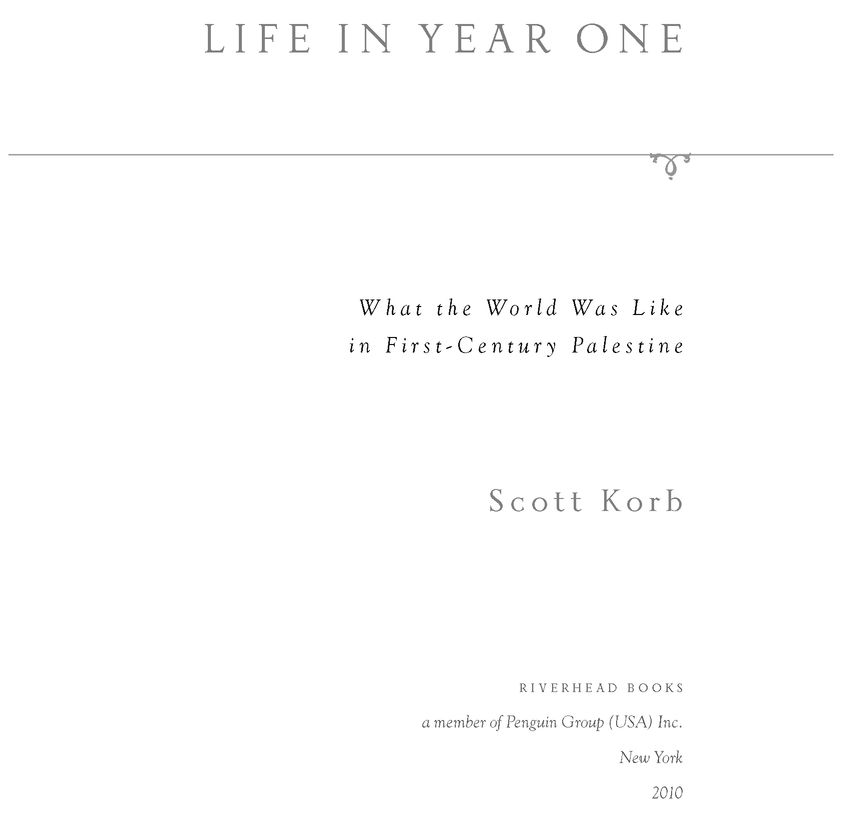Table of Contents
ALSO BY SCOTT KORB
The Faith Between Us: A Jew and a Catholic
Search for the Meaning of God
(Coauthor Peter Bebergal)
The Harriet Jacobs Family Papers
(Associate Editor)
For Kate and Ahkmed
Now every one needs food, clothing, and shelter. The lives of most men on earth are spent in getting these things. In our travels we shall wish to learn what our world brothers and world sisters eat, and where their food comes from. We shall wish to see the houses they dwell in and how they are built. We shall wish also to know what clothing they use to protect themselves from the heat and the cold.
FRANK G. CARPENTER,
Around the World with the Children (1917)
JAMES AGEE AND WALKER EVANS,
Let Us Now Praise Famous Men (1941)
TRANSLATORS NOTE
ON THE EPIGRAPHS FORLIFE IN YEAR ONE
Translating is making choices: a stream of decisions designed to capture something in the original language and deliver it to a new audience. It is impossible, whether we admit it or not, to translate without trying to do something with the material. We are, after all, human. Maybe were trying to convey the beauty of a foreign poet, or maybe were just trying to convince a pretty Parisian waitress to sit down and have a drink with us. Either way, translators always have goals, and these goals affect every decision we make. As readers of a translation, your first questions should always be What is this person trying to accomplish? and How is he trying to accomplish it?
To demonstrate what I mean, a favorite straw man in biblical translation, the beautiful King James Version, will be helpful. In 1604, King James I commissioned a new English-language Bible for the Church of England, translated from Hebrew, Greek, and a touch of Latin by forty-six clergymen and one eminent Greek scholar. It rapidly became the dominant translation. Here is its rendering of Matthew 5:6:
Blessed are they which do hunger and thirst after righteousness: for they shall be filled.
This line is lousy with poetry. It conveys authority and inspires awe. How? Well, it starts with an inversion, Blessed are they, instead of They are blessed. This word order is archaic and literary, even in 1604. In other words, this isnt the way an average Londoner talked. Next we get the delicate phrasing of they which and the elaborated verb form do hunger. Why these choices? For one, they fit the meteroh yes, the first clause is written in an ancient poetic meter called dactylic pentameter. If that isnt fancy enough, we get after instead of a more common for, a choice that suggests striving and effort (plus it too fits the meter).
So what is all this high-flown language meant to accomplish? Simple: To make you believe. To make a Christian out of those who arent, and better Christians out of those who are. The translators created a Bible so sublimely beautiful, so removed from the world, that it could be easily accepted as the Word of God. They set out to do something, and they did it smashingly.
For the epigraphs to the chapters of
Life in Year One, Ive translated some very familiar Greek passages from the New Testament. All except the one heading the Epilogue came from the mouth of Jesus. Here, for example, is my version of that famous line from Matthew:
Those who hunger and thirst for justice are blessed, since they will feast.
It has none of the heightened poetry: no meter, no delicate phrasing, no inversion. So what am I trying to do? Again the answer is simpleto put you there, on the street, at the time the words were spoken. As much as possible (and that is a huge qualifier), I have tried to recreate each line in its context. To do this, Ive used a kind of informed imagining, gathering together everything I can know about the language, the historical setting, and the immediate circumstances, and then wading into that stream of choices.
So for this line, imagine with me: Jesus is on a hill, speaking to a crowd made up of people from all over Judea, Galilee, Jerusalem, and across the Jordan River. He isnt speaking in his first language, Aramaic. He talks in koin Greek, a lingua franca, in order to be understood by Jews and Gentiles alike. His is a spoken language, a trade language, somewhat akin to Swahili in eastern Africa now; but still, koin is degenerated from Classical and Hellenistic Greek, and has tremendous flexibility and force. With its philosophical and literary ancestry, it is a language with a diverse vocabulary, and yet the syntax has been ground down to bare essentials over centuries of use across the Mediterranean in marketplaces, courts, and army camps by non-native speakers. This is the language of the Gospels, full of simple phrases with blunt edges. Consider the class and (minimal) education of Jesus, his followers, and their audience, then ask, What is Jesus trying to accomplish in these difficult circumstancesto be poetic, or to be understood?
PATRICK STAYER
AUTHORS NOTE
ON WRITING LIFE IN YEAR ONE
Beware of those scholars aching to strut around in gaudy robes, who love formal greetings in the markets, prime seats in Synagogues, and places of honor at meals.
LUKE 20:46
Listen to meall of youand pay attention.
MARK 7:14
What goes into the mouth does not corrupt a man, but what comes from the mouth, this corrupts a man.
MATTHEW 15:11
The three quotations aboveall fairly familiar, I think, and all from Jesusare ones I tried to keep in mind as I wrote this book. The first, about strutting scholars, has been a reminder not to be arrogant, advice I find pretty useful whether Im writing a book or not. Beyond that, the warning to be on guard against a certain kind of scholar has helped keep me mindful of the great many other dedicated and generous ones Ive relied on in these pages: those women and men who have spent lifetimes poring over dusty religious and academic texts, sifting through layers of ancient rubble, and toiling away in museums and laboratories piecing together tiny fragments of writing left behind on disintegrating scrolls and the broken remnants of storage jars.
What I want to make clear is that I am not one of those people and, more important, that this book could not have been written without them.
Now, this leads me to the second bit of advice. Never having been on an archaeological dig and not knowing any of the languages used during the first century, Ive listened and tried to pay attention to what archaeologists, historians, and literary and biblical scholars have to tell us about life in year one, CE. What I quickly discovered is that the people who know the most about first-century Palestine tend to repeat the same somewhat frustrating maxim: No one really knows for sure what life back then was like. Frustrating as it may be, this has by necessity become a maxim for Life in Year One, as well.
Beyond that limitation, however, scholars have all kinds of theories about first-century Palestine, and Ive done my best to present those theories that make the most sense, or are the most interesting, to me. Where I think competing theories each make their own kind of sense or are each of particular interest, Ive tried to present all sides as fairly as possible. And so, while Ive tried to pay attention to as many people as I could, those I ended up listening to most youll find mentioned a lot in the notes. The people I listened to only a little youll see are mentioned less. This is not a value judgment, necessarily. Its just that I find some experts more interesting than others, and often those experts also make more sense to me. But make no mistake: This book is a product of my listening to a wide variety of people and then trying, in the words of a more common translation of Jesus advice, to understand.


